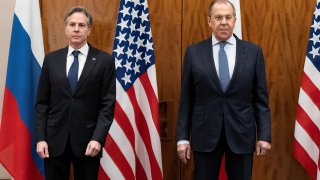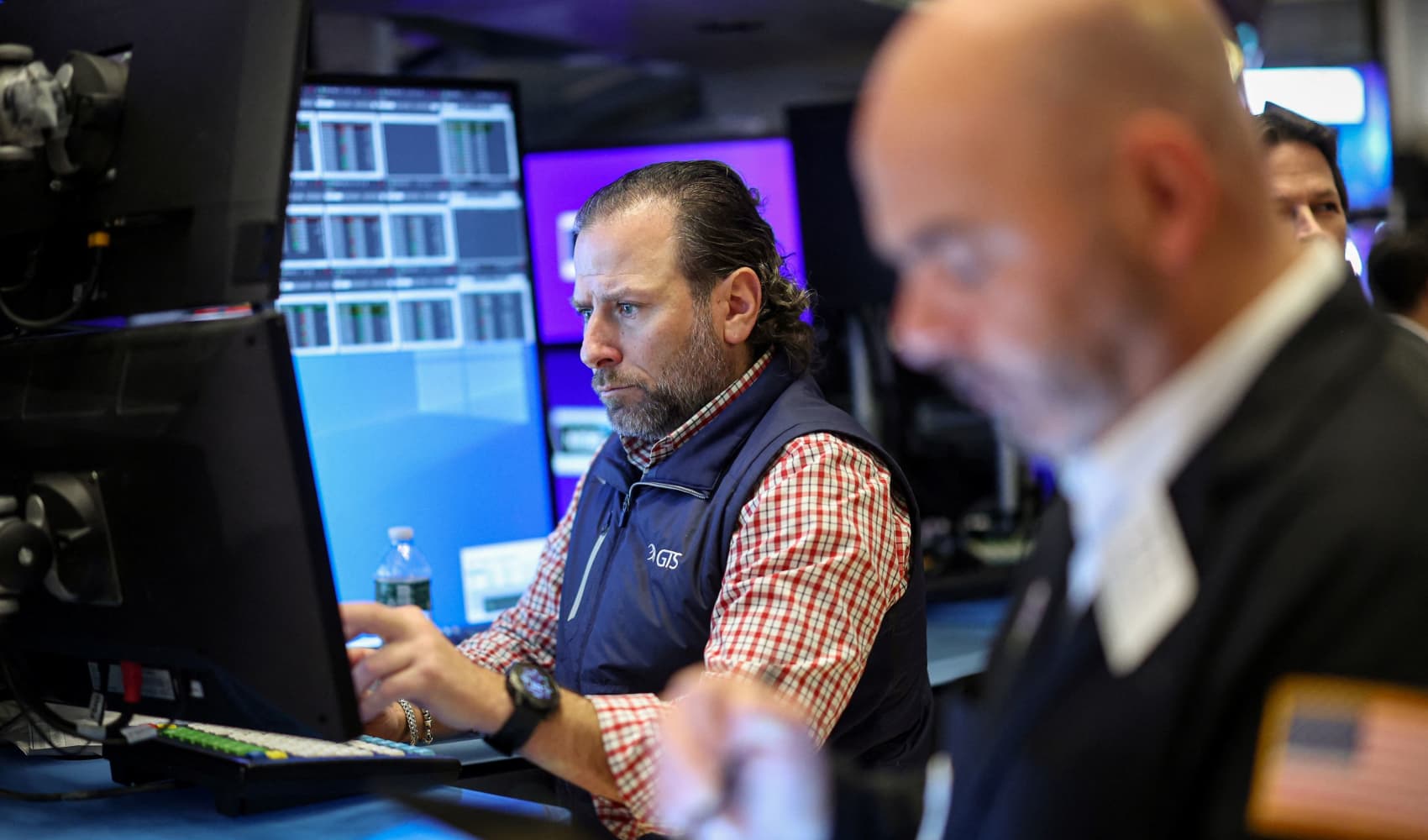
- Last month, Russia set out several main demands on Ukraine, among other security matters, in a draft security pact.
- In the document, it demanded that the U.S. must prevent further eastward expansion of NATO and must not allow former Soviet states to join the alliance.
- U.S. intelligence agencies are warning that Russia could be weighing a potential invasion of Ukraine, with the Kremlin moving 100,000 troops close to the border.
U.S. Secretary of State Antony Blinken faces more tough negotiations with his Moscow counterpart on Friday, as Western officials, including President Joe Biden, warn that Russia could launch a military incursion into Ukraine within a month.
Blinken will meet Russian Foreign Minister Sergey Lavrov in Geneva. And, according to Russia's top envoy to the EU, there's hope the U.S. diplomat will bring with him a response to a series of Russian demands made to the West.
Get top local stories in Philly delivered to you every morning. >Sign up for NBC Philadelphia's News Headlines newsletter.
"Hopefully so, yes," Vladimir Chizhov, the permanent representative of Russia to the EU, told CNBC on Thursday when asked whether the talks could ease current tensions.
"I would hope that Secretary Blinken comes to Geneva not empty-handed, but with a reply, which was promised to the Russian proposals on security guarantees, the ones that were presented to the United States and to NATO countries," he said.
Money Report
Last month, Russia set out several main demands on Ukraine, among other security matters, in a draft security pact. In the document, it demanded that the U.S. must prevent further eastward expansion of NATO and must not allow former Soviet states to join the alliance.
Russia also demanded in the draft pact that the U.S. "shall not establish military bases" in the territories of any former Soviet states that are not already members of NATO, or "use their infrastructure for any military activities or develop bilateral military cooperation with them."
The U.S. and NATO have already described demands that Ukraine not be admitted to NATO, or that it roll back NATO deployments in Eastern Europe, as "non-starters."
"It was promised by his principal deputy, [U.S. Deputy Secretary of State Wendy] Sherman," Chizhov said when asked what would happen if Blinken doesn't deliver a reply.
"If the U.S. government needs additional time, then this can be discussed. But we do expect a written reply."
Relations between the Kremlin and its Western counterparts hit a low in 2014 when Russia annexed Crimea from Ukraine. Moscow has supported a pro-Russian uprising in the eastern part of Ukraine, where low-level fighting between Ukrainian forces and pro-Russian troops has continued ever since.
Now, U.S. intelligence agencies are warning that Russia could be weighing a potential invasion of the Ukraine, with the Kremlin moving 100,000 troops close to the border. Biden, during a news conference Wednesday, also said he expected Russian President Vladimir Putin to order an invasion.
"My guess is he will move in, he has to do something," said Biden, who also warned of a "disaster for Russia" and a "severe cost on Russia and the Russian economy" if the Kremlin did launch an attack.
Blinken departed Kyiv on Wednesday following meetings with Ukrainian President Volodymyr Zelenskyy and Foreign Minister Dmytro Kuleba. While in Kyiv, Blinken worked to reaffirm America's support and commitment to Ukraine as the West awaits Putin's next move.
"It is up to Ukrainians and no one else to decide their own future and the future of this country," Blinken said before meeting behind closed doors with Zelenskyy.
'Too long a shot'
As tensions with Russia escalate, Western officials have said they do not understand why Moscow has moved military troops closer to Ukraine. Speaking earlier this week, Germany's Foreign Affairs Minister Annalena Baerbock said there is "no understandable reason" for the Russian military buildup.
Some experts believe Putin is trying to pressure European officials to approve a new gas pipeline from Russia — Nord Stream 2.
"No, I would say that's too long a shot," Ambassador Chizhov told CNBC, refuting the idea.
Europe is heavily reliant on Russian gas, with about 40% of its natural gas imports coming from Moscow. But approval of the new pipeline has divided Europe's capitals. Some argue it will increase Europe's dependence on Russia even more, while others say it is purely commercial project.
The discord over Nord Stream 2 has also surfaced in the context of new European sanctions. The bloc is considering additional action against the Kremlin if it invades Ukraine and some EU capitals want Nord Stream 2 to feature in these.
When asked if Russia would be upset with potential sanctions involving Nord Stream 2, Chizhov said: "Of course it would upset. [But] more than anybody else it would upset European consumers."
— CNBC's Holly Ellyatt and Amanda Macias contributed to this article.






